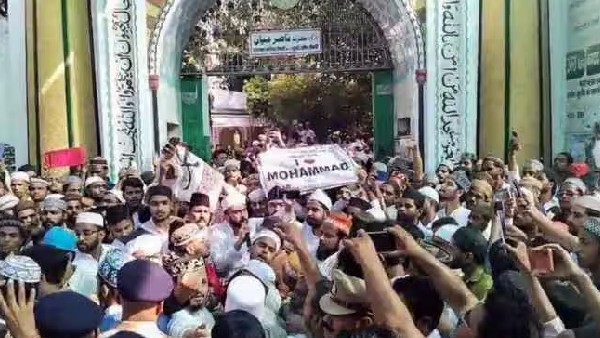
A seemingly simple slogan — “I Love Muhammad” — has ignited a wave of protests, police action, and political tension across Uttar Pradesh, revealing deep fault lines between religious expression, public order, and state response.
The controversy began when posters bearing the slogan appeared in Bareilly and other towns, reportedly as part of a campaign led by cleric Maulana Tauqeer Raza Khan. Intended to express devotion to the Prophet Muhammad, the posters were seen by some as provocative, especially amid heightened communal sensitivities.
Authorities intervened swiftly, citing Section 163 of the Bharatiya Nyaya Sanhita (BNSS), which restricts public gatherings that could lead to unrest. A planned march in support of the slogan was suspended, triggering clashes between police and demonstrators. FIRs were filed against several individuals, and surprise inspections of slaughterhouses followed — signaling a broader crackdown.
Chief Minister Yogi Adityanath weighed in with a sharp warning: “We built bulldozers for those who incite violence in the name of caste.” His remarks, delivered at a state development event, were widely interpreted as a signal of zero tolerance toward any unrest linked to identity politics or religious mobilization.
Posters reading “I Love Bulldozer” and “I Love CM Yogi” soon appeared in Lucknow, turning the slogan war into a political spectacle. While BJP supporters hailed the bulldozer as a symbol of law enforcement, critics accused the state of criminalizing peaceful expression and disproportionately targeting minority voices.
The incident has sparked debate over the limits of religious expression in public spaces, the role of administrative discretion, and the symbolism of state power. Civic groups have called for restraint and dialogue, warning that punitive optics could deepen polarization.
